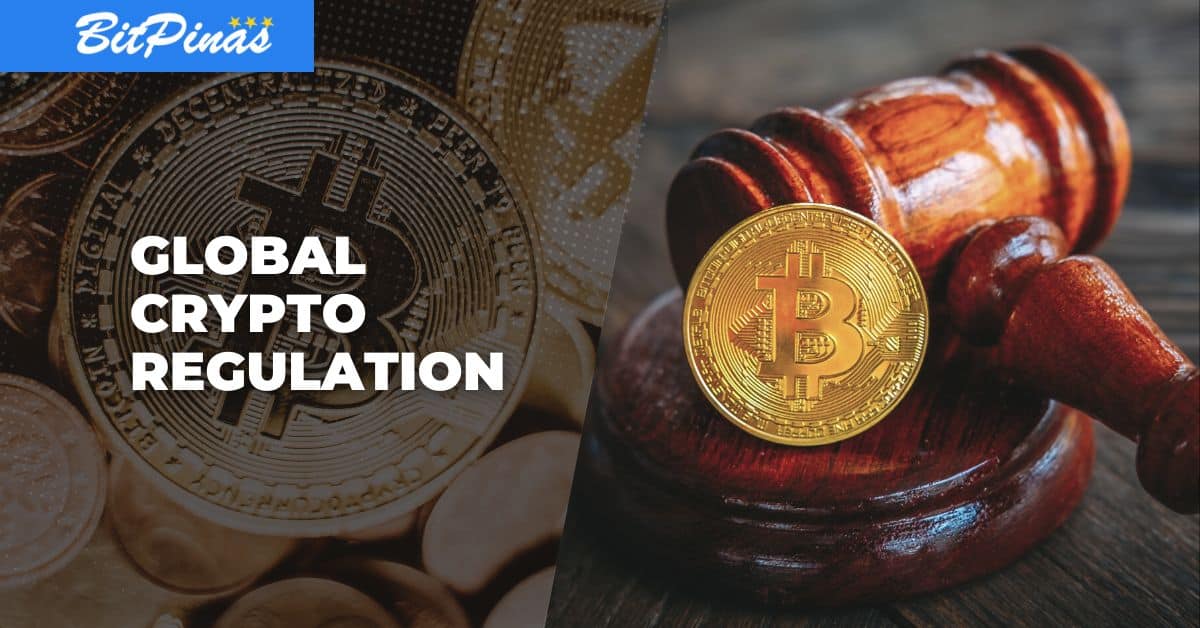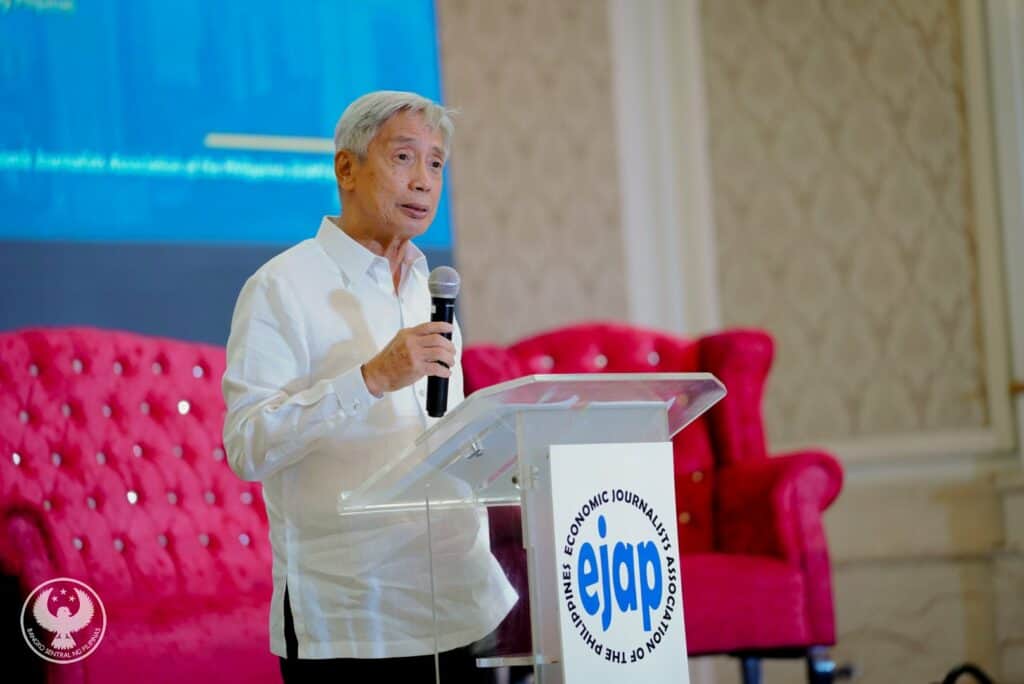Financial Stability Board Preparing ‘High-Level’ Recommendations on Regulation of Crypto
The international watchdog confirmed that it is now working on recommendations for stablecoins and other crypto asset activities.

Subscribe to our newsletter!
Editing and Additional Reporting by Nathaniel Cajuday
- Financial Stability Board (FSB) Chairman Klaas Knot has confirmed that the G20 has tasked his team with creating a global regulatory framework for crypto asset activities.
- The initiative aims to provide guidance for specific entities through the standard-setting bodies responsible for banking, insurance, and securities regulations.
- However, for BSP Governor Felipe Medalla, while the Philippines will surely benefit from having crypto regulations, the country is still in the “grey-list,” a list that proves that a country lacks regulation on anti-money laundering.
To address the growing industry of cryptocurrency in the country, Financial Stability Board (FSB) Chairman Klaas Knot revealed that the G20 has tasked his team with creating a global regulatory framework for crypto asset activities.
“What we are currently working on is deliver a set of high-level recommendations on the regulation of stablecoins on the one hand, and another set of high-level recommendations on global regulation of other crypto asset activities by the July G20 meeting,” Knot said during a briefing at the 23rd FSB Regional Consultative Group for Asia.
The Standards of the FBS

According to the FBS, the regional consultations gather stakeholders’ perspectives and emphasize the need for a global approach to crypto, as global financial stability is considered a global public good that requires consistent implementation of standards.
“For that meeting, we intend to deliver these high-level recommendations, but as the name suggested they are high-level,” Knot stressed, adding that the international watchdog is now working on recommendations for stablecoins and other crypto asset activities.
The initiative aims to provide guidance for specific entities through the standard-setting bodies responsible for banking, insurance, and securities regulations, as the rapid pace of the industry necessitates swift action to ensure effective regulation.
“We have to think about regulatory treatment which would additionally punishing to those jurisdictions that try to play this holdout game where exposures, for instance, of the traditional financial institutions to crypto assets activities that are being originated in these jurisdictions will receive additional, let’s say, supervisory scrutiny, regulatory scrutiny, and the like,” the Chairman insisted.
The Role of the FBS
The establishment of the Financial Stability Board (FSB) took place following the G20 London summit held in April 2009. It is an international body that monitors and makes recommendations about the global financial system.
In a statement, the board clarified that the set of high-level recommendations on global regulation of other crypto asset activities that it will be submitting to the G20 summit is expected to be useful, as some countries are now preparing for their own standards on this asset class.
Knot also expressed that two to three years from now, most jurisdictions will develop legislation in order to protect crypto investors.
Moreover, the European Union, being part of G20, is also foreseen to play a big role in adopting crypto regulations. It can be recalled that just last month, the continent historically approved two crypto-centric regulations that will be effective in 2024.
The Markets in Crypto-Assets (MiCA) Regulation, which is set to regulate the issuance and provision of crypto assets and stablecoin services, with the primary objective of facilitating the regulation of distributed ledger technology (DLT) and virtual assets within the EU while also safeguarding the interests of users and investors; and the European Parliament adding the crypto industry to its currently existing Transfer of Funds Regulation (TRF), requiring crypto operators to verify the identity of their customers to prevent money laundering.
The Effect on the Philippines
Bangko Sentral ng Pilipinas (BSP) Governor Felipe Medalla, who was also present during the briefing, said that the Philippines will be one of the countries that will benefit from a regulatory framework,

“From my point of view, that’s the state at play, that crypto in the Philippines is not a financial stability issue because it’s not involving too many people, but it is an issue that may call for the attention of the government one way or the other,” explained Medalla, who is also the co-chairman of FSB.
As per the central bank governor, regulations become more stringent when crypto intersects with banking, as cross-border transactions have the potential to finance activities that can be harmful:
“Mukhang may mga remittance companies that will use crypto as the basis for moving money cross-border so therefore, importante maintindihan natin para ma-regulate natin properly at maprotektahan ang mga tao.”
[“It looks like there are remittance companies that will use crypto as the basis for moving money cross-border, so therefore, it is important for us to understand it so we can regulate it properly and protect the public.”]
One of the benefits of using crypto, especially for remittances, is having lower fees and faster transactions as it uses blockchain technology. Last year, Kenneth Stern, the general manager of Binance in the Philippines, explained how blockchain technology helps with cheaper and faster transactions for remittances.
Some of the known local companies that are utilizing blockchain for remittance services, include UnionBank, Cebuana Lhuillier, and Pouch.ph.
However, Medalla admitted that one of the problems that the country is currently facing is that the Philippines has been on the “Grey List” of the Financial Action Task Force for ten years now:
“Indeed, our big problem is that the Philippines is on the grey list, which has possible consequences. That’s why we cannot afford, although we have had a moratorium on issuances of what we call VASP, Virtual Asset Provider. These are the things we want to address.”
Read more:
- The FATF, Cryptocurrencies, and the Philippines
- What is the FATF Travel Rule on Cryptocurrency?
- What is the FATF Guidance on DeFi?
- FATF Guidance: NFTs Should Be Regulated Case-by-Case
Being a grey-listed country means that the government is under increased monitoring because it has been found to have strategic deficiencies in efforts to counter money laundering, terrorist financing, and proliferation financing.
But despite being on the grey list, the Philippines has made a “high-level political commitment” to work with the global financial caretaker to boost their AML and CFT regime since the country was last included on the list in 2013.
The Efforts of the BSP
During a meeting with the Senate Committee on Banks, Financial Institutions, and Currencies last year, the central bank urged the Senate to draft legislation that specifically addresses digital assets, including cryptocurrencies and non-fungible tokens (NFTs), in order to safeguard consumers. The BSP noted the need to amend and pass the Digital Assets Act (Senate Bill 184) and Senate Resolution 126 concerning cryptocurrencies and digital assets.
At present, the BSP monitors virtual asset service providers (VASPs) to ensure that individuals are engaging with licensed and regulated entities. The BSP’s oversight aims to ensure the safety and security of users in their transactions involving virtual assets.
This article is published on BitPinas: Financial Stability Board Preparing ‘High-Level’ Recommendations on Regulation of Crypto
Disclaimer: BitPinas articles and its external content are not financial advice. The team serves to deliver independent, unbiased news to provide information for Philippine-crypto and beyond.





